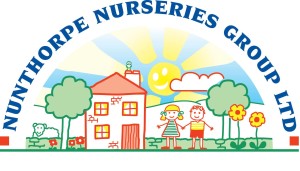Physical activity is essential for toddlers’ growth and development. Exercise and physical activity have numerous benefits for toddlers, including promoting physical growth, developing gross and fine motor skills, enhancing cognitive development, and supporting emotional and social development.
This article will explore the many benefits of exercise for toddlers and provide ideas for incorporating physical activity into your toddler’s daily routine.
Exercise Promotes Toddlers Physical Growth
Physical activity is crucial in promoting toddlers’ physical growth and development. Regular exercise and physical activity can help strengthen bones, build muscle mass, and maintain a healthy weight. Physical activity promotes blood flow to muscles, which helps to nourish and support them.
Exercise also helps improve posture and balance, reducing the risk of falls and accidents. Activities such as running, jumping, climbing, and dancing can help improve balance and coordination, essential skills for toddlers to develop.
Toddler’s Gross Motor Skills Are Improved By Exercise
Gross motor skills refer to large muscle groups, such as those used for crawling, walking, running, and jumping. These skills are essential for toddlers’ physical development and enable them to explore their environment and interact with others.
Physical activity can help to improve gross motor skills by promoting muscle strength, flexibility, and coordination. Activities such as running, jumping, and climbing can help to improve these skills, as can playing with balls or engaging in other games that involve throwing and catching.
Exercise Reduces The Risk of Toddlers Developing Health Conditions
Exercise helps to improve cardiovascular health, strengthen muscles and bones, and maintain a healthy weight, reducing the risk of obesity and associated health problems.
Exercise Improves Toddlers Fine Motor Skills
Fine motor skills refer to using smaller muscle groups, such as those used for grasping objects, writing, and manipulating small objects. These skills are essential for toddlers’ development and enable them to perform a wide range of everyday tasks, from dressing themselves to holding a pencil.
Exercise can improve fine motor skills by promoting hand-eye coordination, agility, and finger strength. Activities such as playing with building blocks or puzzles can help to improve these skills, as can engaging in activities that involve drawing, colouring, or cutting.
Exercise Can Improve A Childs’s Sleep Pattern
Exercise can improve children’s sleep quality and duration, leading to better health and behaviour outcomes.
Exercise Improves A Toddlers Cognitive Development
Exercise has numerous benefits for toddlers’ cognitive development. Physical activity promotes brain development, enhancing memory, concentration, and attention span. Exercise also helps to improve overall cognitive function, including problem-solving, decision-making, and creativity.
Activities such as dance, yoga, and other physical activities that require focus and concentration can help to improve toddlers’ cognitive function. Even simple activities such as stretching or walking can help to improve mental clarity and alertness.
Exercise Improves A Toddlers Emotional and Social Development
Exercise can also have significant benefits for toddlers’ emotional and social development. Physical activity can help to promote self-esteem, self-confidence, and a positive self-image. Exercise can also help reduce stress and anxiety, positively impacting overall emotional well-being.
Engaging in physical activities with others can also promote social skills such as cooperation, teamwork, and communication. Team sports or group dance classes can also improve social skills and foster community.
How To Incorporating Exercise into A Childs’s Daily Routine
Incorporating exercise into children’s daily routines doesn’t have to be complicated.
Below we discuss some ideas for promoting physical activity and exercise in children.
Encourage Active Play
Encourage children to engage in active play by providing toys and equipment that promote physical activity, such as balls, jump ropes, and climbing structures.
Go for a Walk or Hike
Take children for a walk or hike in a nearby park or nature trail. Walking and hiking are simple and easy ways to incorporate physical activity into a child’s daily routine while promoting appreciation for nature and the environment.
Organise A Dance Party
Put on some music and have a dance party with the children. This is a fun way to incorporate exercise into children’s day and promote cognitive and emotional development.
Sports and Games
Encourage children to participate in sports and games like soccer, basketball, or tag. These activities promote physical activity while fostering social skills such as teamwork and communication.
Exercise as a Family
Engage in physical activities as a family, such as going for a bike ride or taking a yoga class together. This promotes a healthy lifestyle for the whole family and fosters a sense of togetherness.
Why Should Toddlers Exercise?
Exercise and physical activity are essential for children’s overall health and well-being. Regular exercise promotes physical development, improves cognitive function, enhances mental health, and fosters social skills. Parents can promote a healthy and active lifestyle by incorporating physical activity into a child’s daily routine while fostering essential life skills.
If you’d like more information about Nunthorpe Nurseries Group or any of our nurseries and services, please do not hesitate to contact us.

